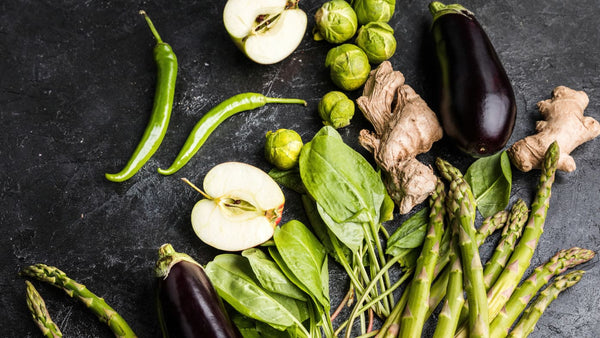What Are Preservatives?
Preservatives are natural and synthetic substances that are added to a variety of goods to prevent premature decomposition and extend their shelf life. Preservatives are commonly found in a wide range of foods and cosmetics. However, some people are unaware that preservatives are also added to non-traditional items such as pharmaceuticals and wood.
Two Types of Preservatives
Natural and artificial/chemical preservatives are the two types. Both aim to extend the life of an item, but they differ in many ways. Both, however, use the same methods of preservation:
- Antimicrobial: Prevents microorganisms such as bacteria and fungi from growing.
- Antioxidants: Slows or completely halts the oxidation process.
- Enzymes: Prevents cosmetics and similar products from expiring.
Natural preservatives are primarily used in foods and beverages to help prevent rotting and preserve the color and flavor of the item. They can, however, be found in cosmetics and other hygiene products. Natural preservatives commonly used include:
- Aloe vera;
- Citric acid;
- Lemon juice;
- Rosemary extract;
- Sodium;
- Sorbic acid;
- Sugar.

Artificial/chemical preservatives are man-made substances that are added to a variety of products to help them last longer. While they, too, are designed to keep foods from spoiling and to keep their shape and color, they are frequently laced with chemicals. Chemical preservatives commonly used include:
- Antimicrobial agents;
- Antioxidants;
- Benzoates;
- Chelating agents;
- Nitrates;
- Propionates;
- Sorbates;
- Sulfites.
While both artificial and natural preservatives serve the same purpose — extending the shelf life of products — how they are used varies depending on the product to which the preservative is added. Preservatives added to cosmetics, for example, serve a different purpose than those added to food.
Reduce Preservatives from Your Diet.
Foods containing a high concentration of preservatives can be hazardous to your health. As a result, eliminate preservatives from your diet as soon as possible.

Preserving food has been a common practice for millennia. Food has been stored in clay jars and dried to avoid the accumulation of bacteria and fungi, as moisture is required for the growth of these microorganisms. Sugar and salt are examples of well-known preservatives.
Natural and artificial food preservatives are the two types. Natural preservatives, such as oil and salt, do not change the chemical composition of the food and are high in antioxidants, which help to delay the oxidation or aging process. Artificial preservatives, such as BHA (Butylated hydroxytoluene), on the other hand, may alter the chemical makeup of the food and cause health problems. These preservatives, known as additives, may be a cause of asthma and obesity. Preservatives are used in a wide range of foods, including fruits, canned kidney beans, and chicken.
As a result, to live healthier lives, we must take active steps to eliminate preservatives from our diet.
Why Removing Preservatives from Your Diet is Important
According to a study published in the International Journal of Pharmaceutical Sciences and Research, while preservatives extend the shelf-life of food by preventing spoilage, their regular consumption can lead to serious health problems such as hypersensitivity, allergy, asthma, hyperactivity, neurological damage, and weight gain.

Preservatives can cause you to consume more sodium and saturated fats, raising your LDL cholesterol (bad) levels. Eliminating processed foods from your diet will help you avoid inflammation, lower your risk of heart disease, manage your weight, and reduce the number of toxins in your body.
What Can You Do to Make Your Diet Preservative-Free?
1. Read the Label
When purchasing food, read the labels carefully to avoid foods or food products containing preservatives. The list of ingredients on the packaging will assist you in identifying the preservatives and their intended purpose. Sulfur dioxide, for example, may be used to prevent rotting, while salt is added to increase shelf life and taste. This will allow you to differentiate between natural preservatives and additives and make informed decisions.

2. Shop Smart & Carefully
According to a Mayo Clinic study, shopping the perimeter of the grocery store is an excellent way to avoid purchasing preservative-laden products and produce. This occurs because most stores arrange their whole foods, fruits, and vegetables, in a single line around the perimeter of the store, while unprocessed foods are stacked in the aisles. Choose fresh fruits and vegetables, whole grains, raw dry fruits and seeds, unflavored dairy, and minimally processed or uncooked meats. This includes avoiding canned foods, frozen meals, condiments, sauces, sugary beverages, chips, and sliced bread.

1. Cook Your Meals
Cooking your meals is the best way to avoid preservatives. This gives you control over what ingredients you eat, how many calories you consume, and how much sugar, fat, salt, and additives you use. Begin by making small changes to your diet, such as reducing or eliminating the use of dressings, frozen meat, and preserved fruits and vegetables. The next step would be to season and cook meals from scratch using fresh fruits, vegetables, and raw meat. Ingredients like peppermint, chilies, and tomato could also be used to make homemade condiments.

Benefits of Reducing Preservatives & Processed Foods
Consuming preservative-free food has numerous advantages. Preservative-free food is generally healthier because it contains no harmful chemicals. It is also usually fresher and tastier because it has not been treated with chemicals, and it is often more difficult to find and produce.
There are several reasons why someone might choose to consider more preservative-free food in their diets:
- Health concerns: Some people may avoid foods containing preservatives due to health concerns or allergies. Giving a preservative-free food gift allows the recipient to enjoy the present without fear of negative health consequences.
- Quality: Foods without preservatives are generally considered to be of higher quality because they are typically made with fresher ingredients and do not contain additives that are used to extend their shelf life.
- Taste: Many people believe that preservative-free foods taste better because they do not contain artificial additives that can alter the taste of the food.
- Sustainability: Using fewer preservatives in food production can be more environmentally friendly because it reduces the amount of chemicals used and disposed of.

